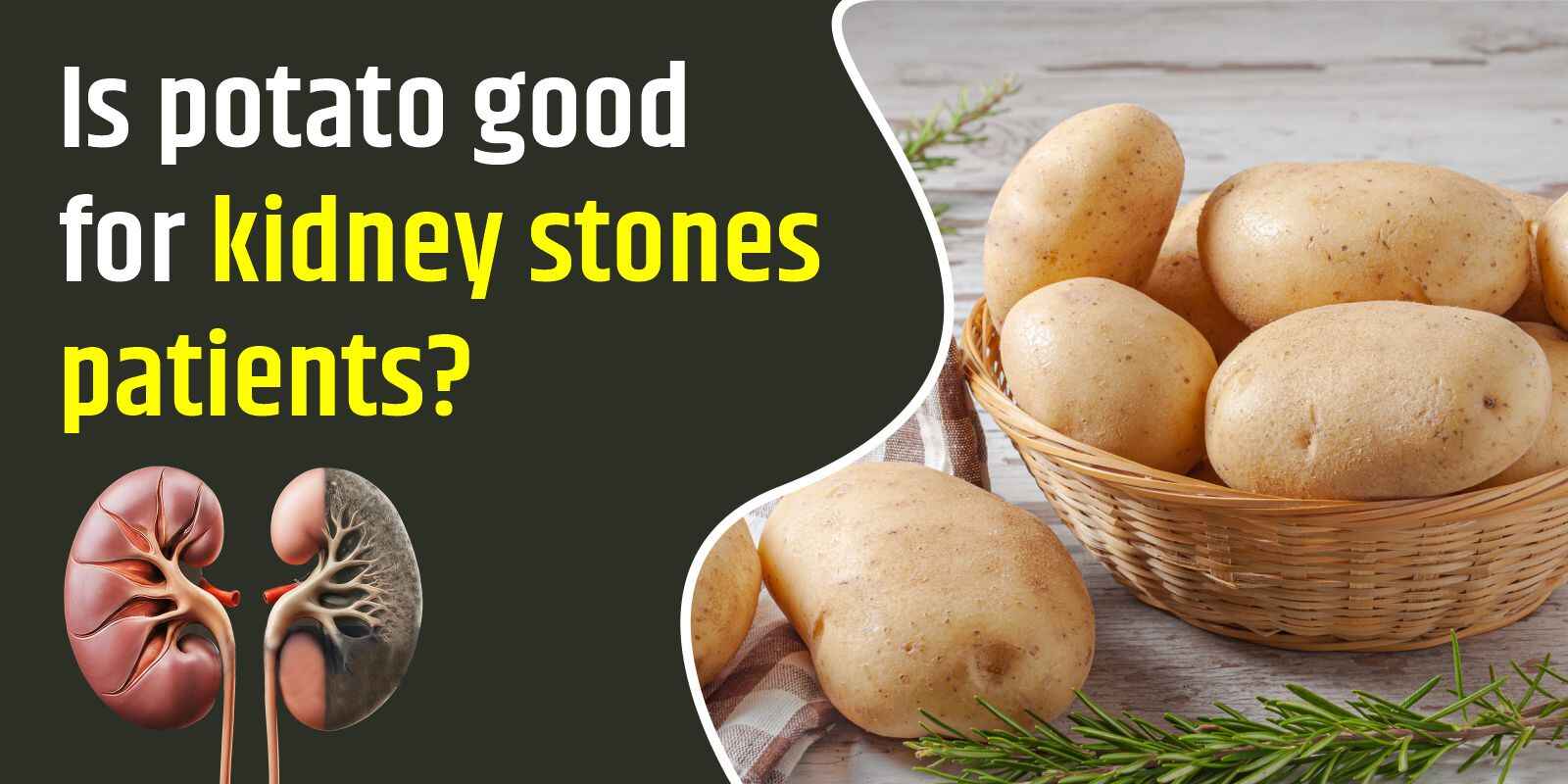
Kidney stones (or renal calculi, nephrolithiasis, or urolithiasis) is a medical condition referring to the hardened deposits of salts, minerals, etc. that get accumulated in our kidneys. Kidney stones of insignificant size do not cause pain; however, a big kidney stone can not only result in unbearable pain but result in severe health complications as well. Ayurvedic treatment of kidney stones concentrates on the removal of renal stones via appropriate Ayurvedic herbs. Ayurveda offers a non-invasive treatment for kidney stones.
Potatoes, as we all know, are rich in carbs and nutrients. They are a rich source of potassium and vitamin C, an antioxidant. If you are a renal patient, then nephrologists may discourage you from including potatoes in your diet as they are a rich source of potassium. In addition, potatoes also contain oxalates. Consuming potatoes in higher amounts can significantly increase your risk of getting oxalate-based renal stones. If you have renal stones, then staying away from potatoes can be a wise decision for you. However, if you still want to include potatoes in your diet, take care of the following things:
Ayurveda offers a thorough treatment for renal stones. Ayurvedic treatment of renal stones makes use of effective natural herbs to flush out renal stones from the body. Some of the best medicines for treating renal stones are:
Renal stones can be troublesome and pretty painful too. Treating them early is key to a complete recovery from them. Consuming potatoes while you are suffering from renal stones will not be a good idea, as they are rich in potassium and may aggravate your renal stone symptoms.
"Ayurveda is not just a system of medicine; it's a way of life. Connect with us to embrace a lifestyle that nurtures your body, mind, and soul."

Certificate no- AH-2023-0186
JAN 05,2023-JAN 04,2026